Young investors will drive the speed of environmental change
While it sometimes appears that younger generations cop the brunt of criticism (either for buying too much or not buying enough), a major theme is emerging where the youngest consumers will be the agents of change when it comes to sustainable investing.
The choices of consumers aged 16 to 40 will determine whether long-term emissions plans are likely to be met. They will have a significant influence on the environment, as soon they will be the group spending the most money on – potentially sustainable – products and services.
Sustainable choices of young consumers will have a key influence on climate
To what extent young consumers choose sustainable services and products likely will determine the speed of environmental change: They already make up 54% of the world's population and their share of total global consumer spending is 48%.
More importantly, by 2040 Generation Y (Millennials) and Generation Z will be the highest earners and therefore potentially the biggest spenders (69% of total consumer spending).
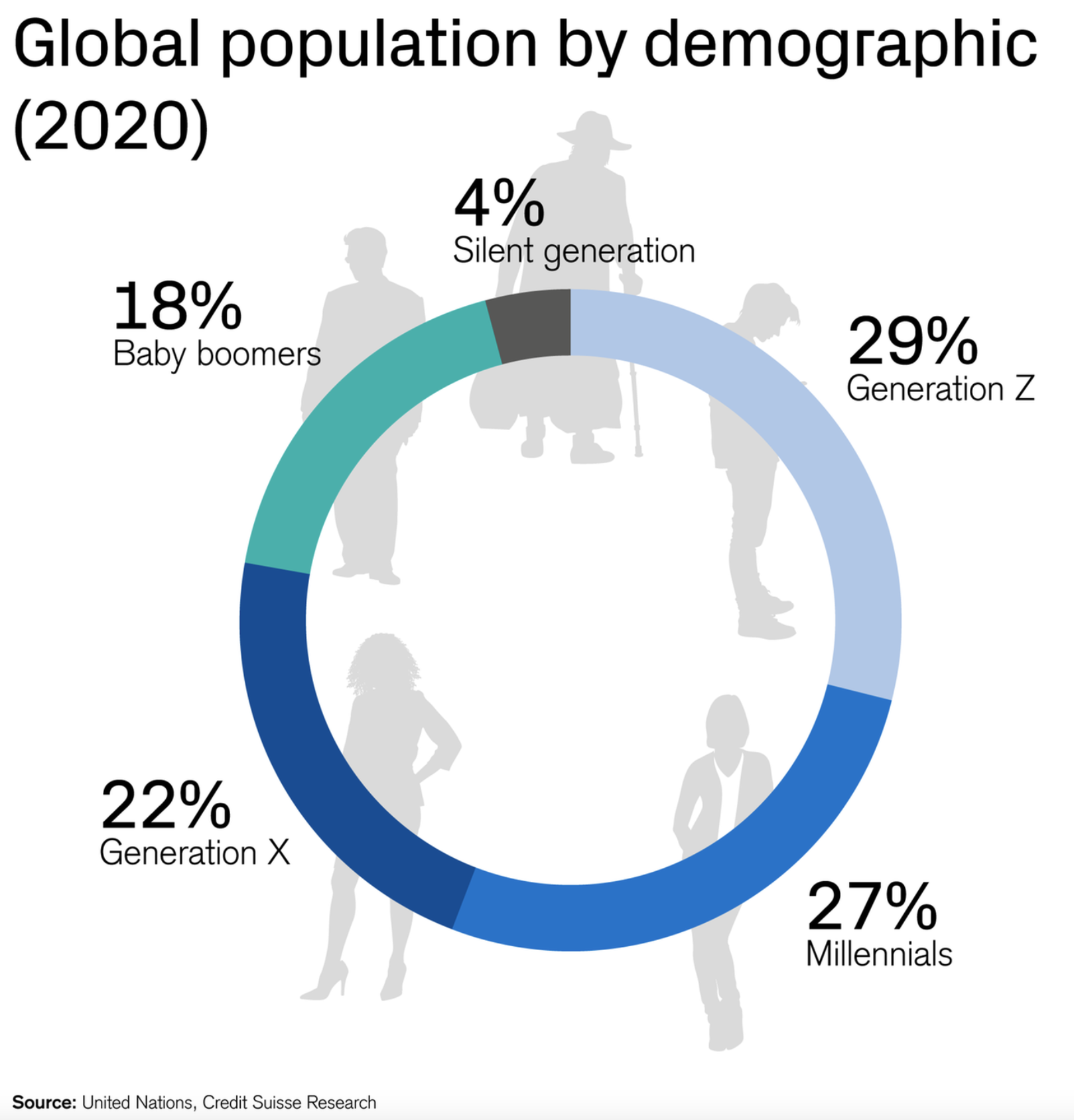
Young consumers' choices will likely transform industry
The greatest potential for change lies within the most environmentally impactful branches of industry. We have taken a closer look at the choices young consumers declare regarding energy for housing, food, fashion, and travel.
Total estimated consumer spending (USD trillion)
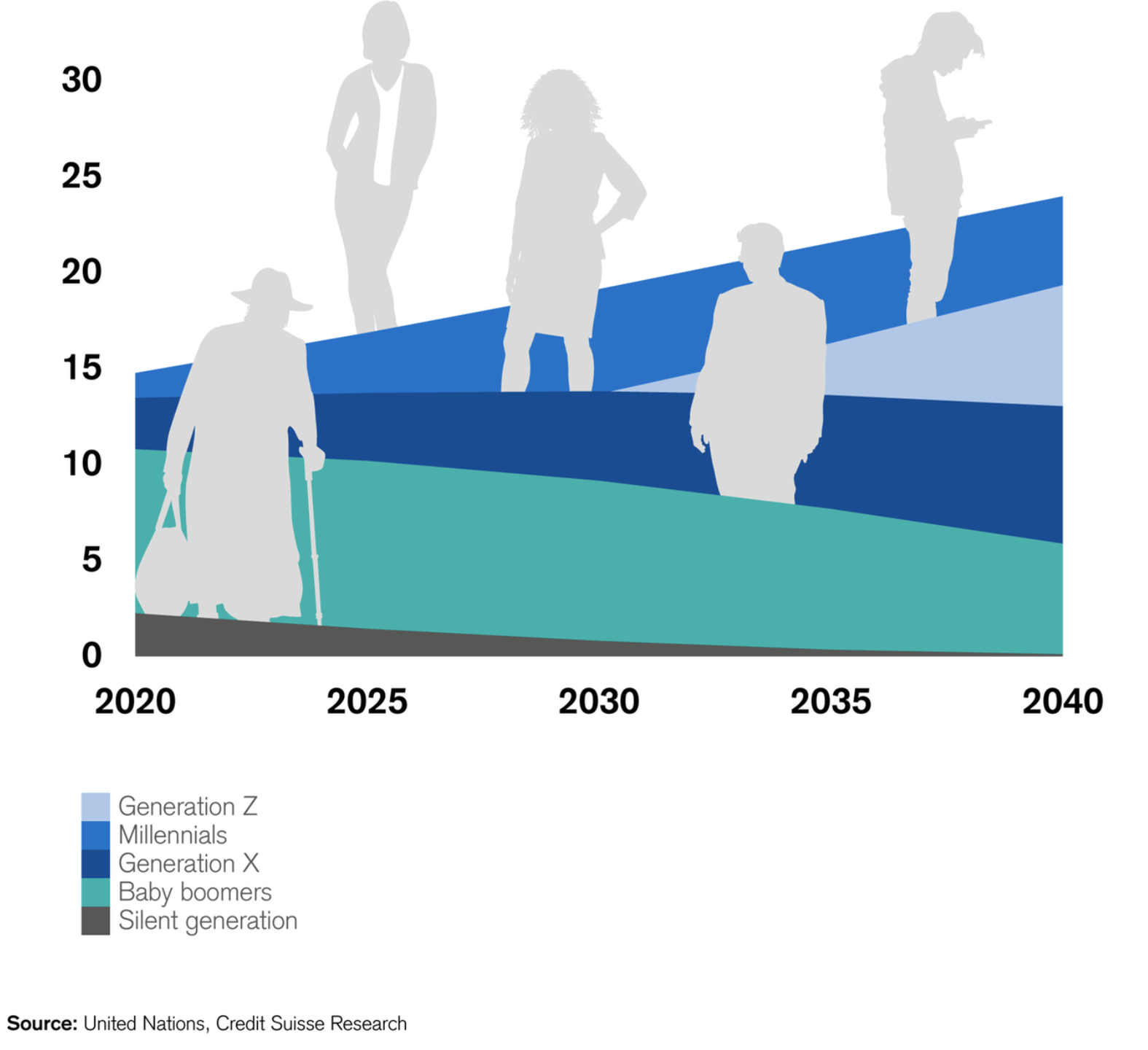
The outcomes from The young consumer and a path to sustainability report are encouraging: They suggest robust future growth potential for a range of sustainable products and services as well as a strong desire to reduce consumption of unsustainable products. However, the young consumers surveyed for the report do not yet embrace a more sustainable approach in every aspect of their lives. Interestingly, these aspects differ depending on the region and development level of the country.
Food consumption and production
Younger consumers across both developed and emerging economies want to improve the sustainability of their diets by eating more plant-based products and decreasing their consumption of fast food and meat. They attribute this choice to environmental, animal welfare, and health reasons.
In the future, how is the consumption of the following food and beverage products likely to change? (%)
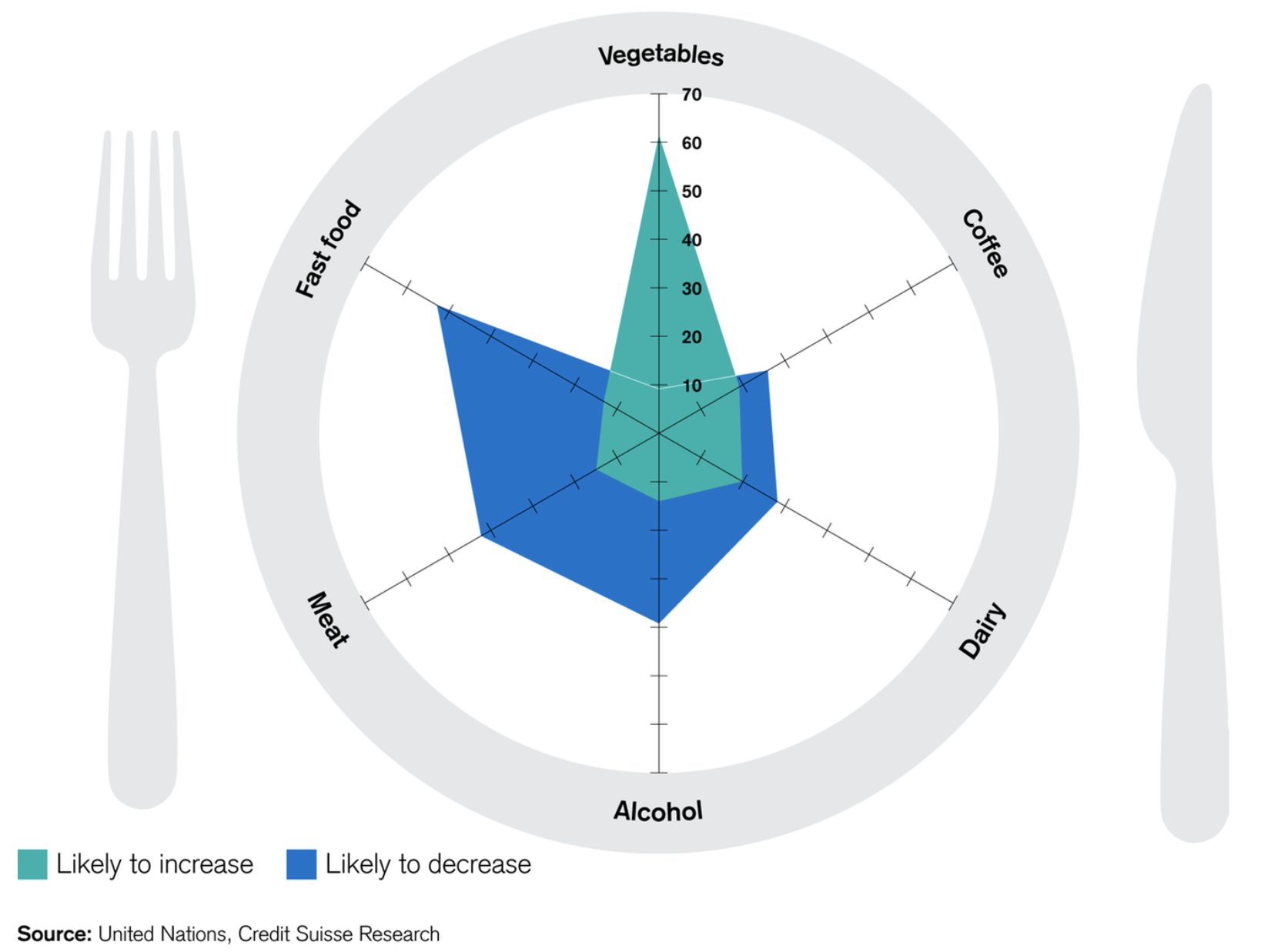
Though young consumers seem relatively less willing to move away from traditional dairy products compared to meat, all in all, around 65% of respondents expect to increase their consumption of plant-based meat and dairy alternatives in the future.
Getting smart about housing energy
Energy production is incredibly taxing to the environment. While the overall likelihood of investing in energy-saving technologies like solar panels and insulation appears relatively high among Generation Y and Z, this is overwhelmingly driven by respondents from emerging markets. Also, young consumers all around the world seem interested in investing in sustainable solutions like smart heating and cooling monitoring systems, and heat pumps.
During the next five years, how likely are you to invest in the following energy-saving technologies?
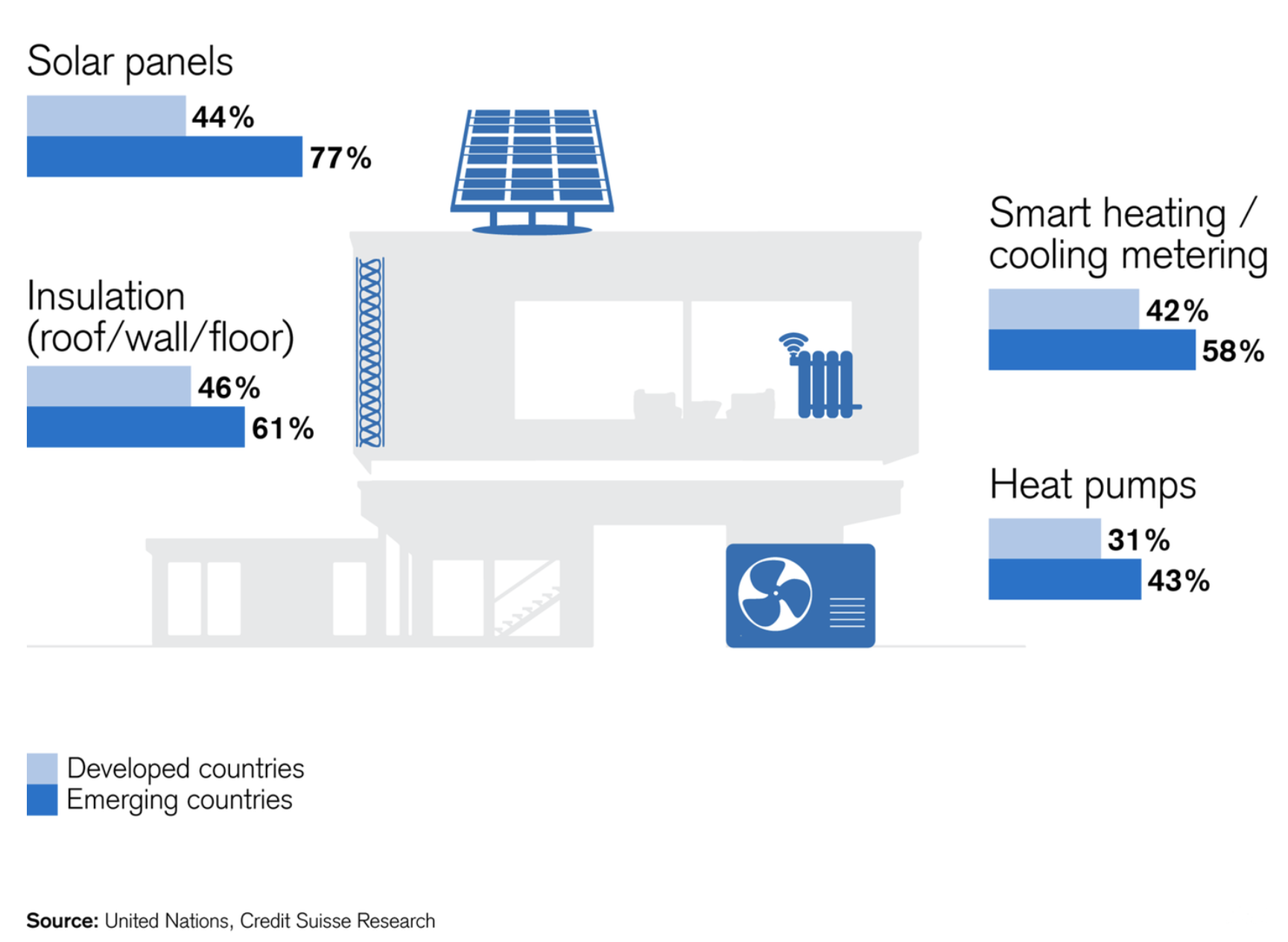
Travel and transport choices
To be net zero by 2050, nearly 100% of light-duty vehicle sales would need to be zero-emission by 2040 globally. Our survey results suggest a rapid shift in consumer preference in the coming years.
We found that 63% of all respondents expect to own electric/hybrid vehicles – more than three times the 19% who own such vehicles currently.
Therefore, the transition from traditional internal combustion-engine vehicles to electric/hybrid vehicles looks quite promising, although, again, it is driven by respondents from emerging markets.
In relation to cars, which of the following options describes your situation? (%)
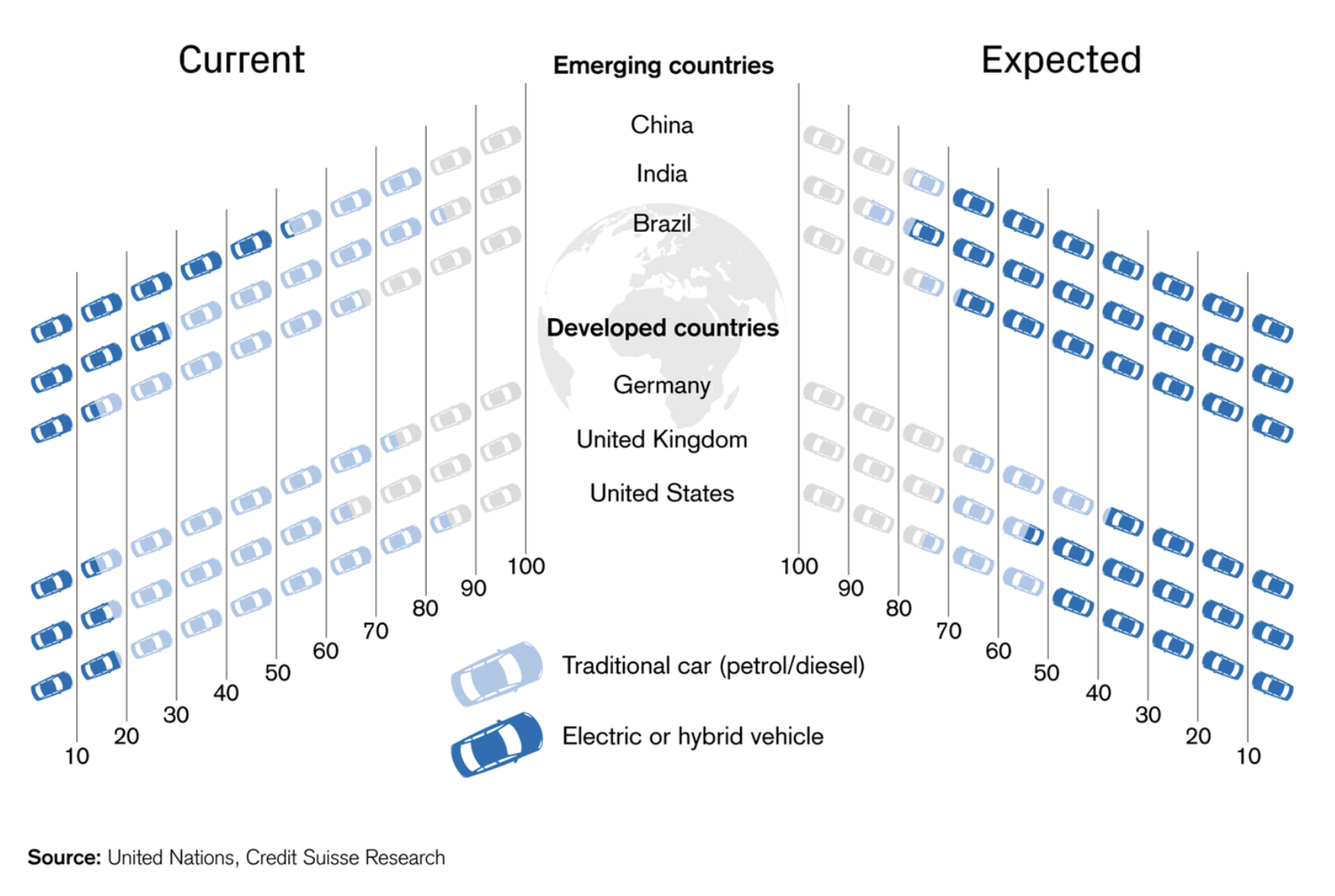
In contrast, reducing the amount of air travel was among the least likely to occur among the respondents, particularly in the developed markets where the majority do not intend to reduce how much they fly for non-business travel.
Thinking of environmental concerns and flying, which of the following options describes your future situation best? (%)
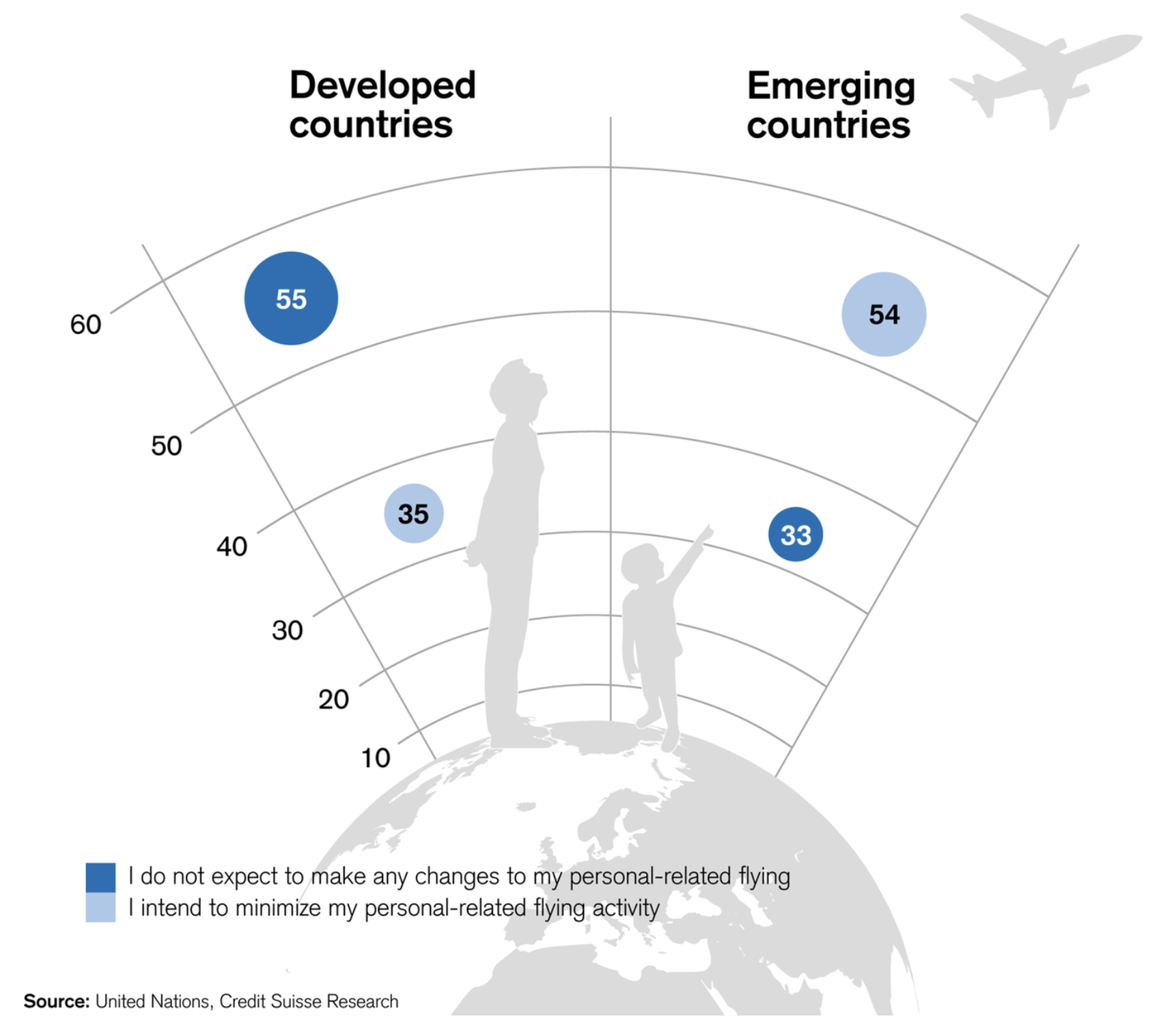
Decline of fast fashion
The textile industry involves millions of producers and billions of consumers globally, which means it is fertile ground for improvement. The past decade has seen the rise of fast fashion, with its significant environmental impact in terms of water intensity, pesticide usage, and waste generation. It has also been often associated with social and labor-related issues. However, awareness seems to grow, and over 40% of the consumers we surveyed believe the fashion industry is unsustainable. What is more, on a net basis, a greater number of respondents expect to decrease their consumption of fast fashion and luxury brands.
In the future, do you expect your usage of the following retail channels to increase or decrease?(%)
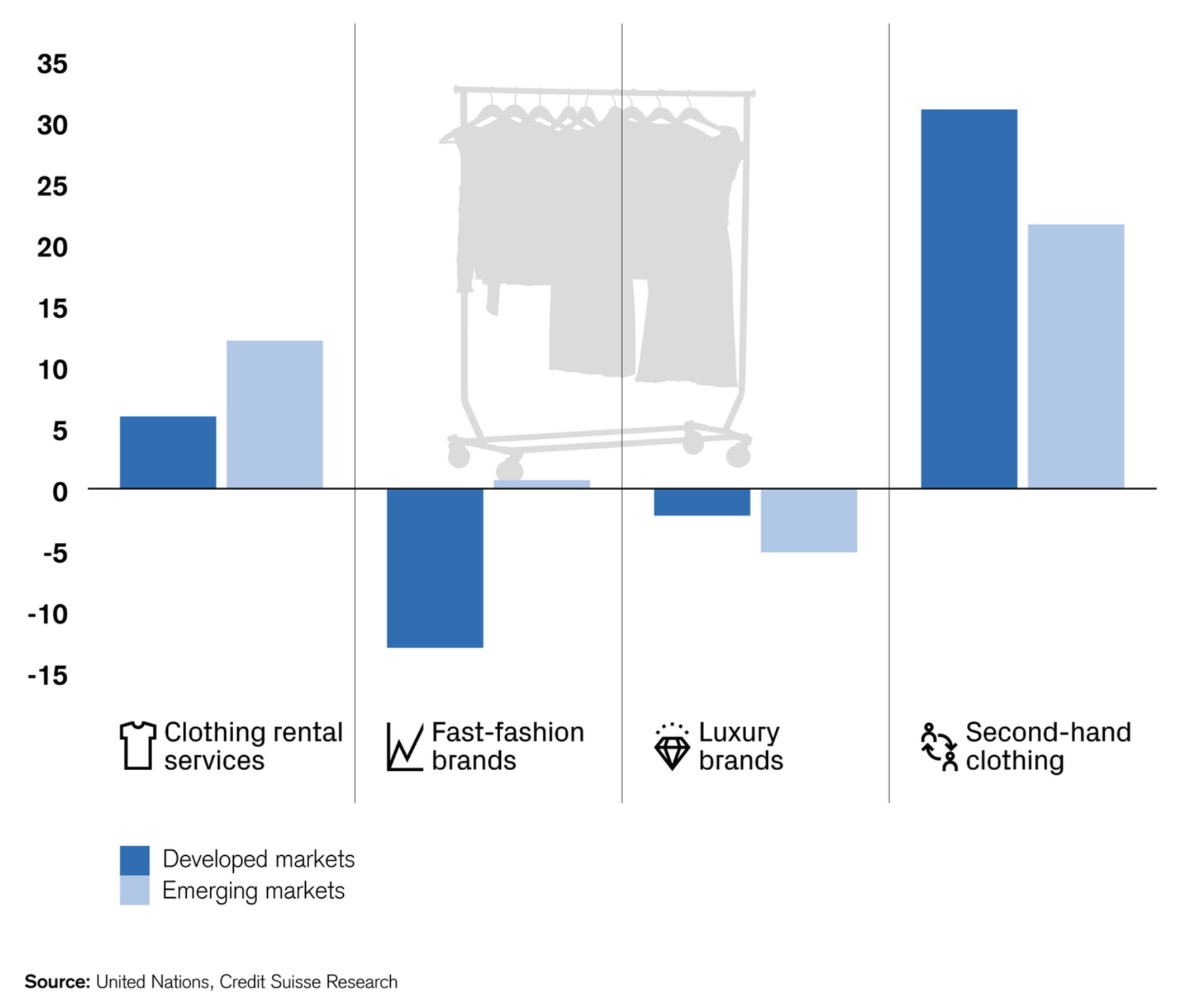
Choosing more sustainable products and services with regard to fashion seems more likely to occur in developed markets when compared to emerging markets.
While the need to create a more sustainable future may appear apparent to many, the question is whether consumers will play their part and adopt a more sustainable lifestyle. With their increasing importance as consumers, younger generations could be the agents of change.
Investing with purpose
When Credit Suisse first launched the Supertrends in 2017, its objective was to identify multi-year societal trends that could lead to fast-growing business opportunities and enable investors to grow their capital. To access the latest Supertrends report, please visit our website.
4 topics

